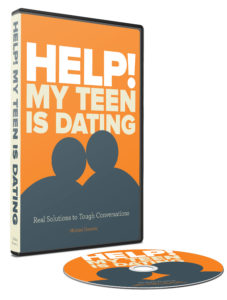Thank you for joining us here to continue the conversation from the book Can I Kiss You? A thought-provoking look at relationships, intimacy, and sexual assault written by Mike Domitrz.
Below, you will find the bonus sections for each chapter specifically written for Parents.
**If you can across the page accidentally, this is a special page devoted to Parents who are utilizing this book for helping their children.
Chapter 1 Questions to Consider
What messages are you sending to your child?
When you are upset, frustrated, or disappointed by your child and see your child giving you a “look,” do you assume what your child’s body language means or do you inquire with sincere interest? If you assume, your child is learning from your messaging that they can assume instead of ask questions and clarify.
Do you assume your child’s feelings are caused by you? Example: “Why is my child so upset with me?” – when maybe your child is upset at themselves or something completely separate?
Are you failing the body language challenge with your child? Role model asking questions respectfully (without attitude).
Chapter 2 Bonus
What is the secret to creating equality for your son or daughter in relationships?
Remove stereotypical roles from teaching how to date, be in a relationship, and or with being sexually active. Focus on teaching your child to be a wonderful person (mistakes are saying “A real man . . .” or “A real woman would never. . . “
Chapter 3
Take the “Respect Survey” for your family. “1” is NEVER and “5” is ALWAYS.
Circle the correct answer for yourself.
1. Do I treat myself and each of my siblings with respect – both in times of fun and times of frustration?
1 2 3 4 5
2. Do I ask questions instead of assuming?
1 2 3 4 5
3. Do I recognize I may be creating stories in my head that are not true and thus do I recognize the importance of clarifying with language such as, “The story I’m telling myself right now is . . . “
1 2 3 4 5
4. Each day, do I end my day sharing, reflecting, and/or writing all the ways I intentionally acted with respect for others in my life and when I did not. When I did not, what could I have done differently to do so?
1 2 3 4 5
Results:
Add your scores up and see how you align with the following guidelines:
1-10 = Acknowledge Control is Controlling Your Parenting Choices. Often we get stuck trying to “Control” instead of empower our kids and/or their lives. Empowering a child better enables your child to make the best choices when you are not around. “Control” can lead to a child getting out of “control” when they are away from parents because it’s their first chance at freedom. Start by being compassionate with yourself along this journey.
11-15 = Gaining Consistency. You are making some helpful choices for your child’s development. Now, you want to access ways you can do that more consistently. Watch for “Triggers” which are actions and/or results that lead you to not making the most empowering choice for your child (and often for yourself). When you can start to acknowledge the triggers, you can better work on making healthier choices when those triggers appear.
16 – 20 = Fine-tuning. Great job. You are already empowering your children and role-modeling lots of healthy behavior. Now, its just fine-tuning those answers that were not “5”s.
CHAPTER 4
Consent is Ongoing
Talk to your child about how a healthy relationship means all partners can speak openly and honestly about they do and do not want to experience at any moment. The key wording is at “Any Moment.”
Here is a video on this specific topic:
Chapter 5
Having a Strong Sexual Standard is essential for teens.
Without a healthy understanding of one’s own standards, a teen is more likely to be influenced by others, including those who may not have your teen’s best interest at heart (including potential sexual partners). You want your teen to always know what they stand for and don’t stand for – to have a voice in each decision. Teach your child how to establish their own standards (the key word being “their own” and not yours, Mom or Dad).
Chapter 6
Tell your teenagers, “The wait is worth it.” As a parent, are you waiting?
Did this one throw you off? Parents often like to remind teens that “The wait is worth it” without explaining in detail why. The more specific you are with your teenager, the better. Talk about WHY people often wait to insure they are ready for the most mutually amazing experience for all partners – to know they have all the components necessary for mutually amazing intimacy.
Too many parents are “waiting” to talk in detail because they are uncomfortable with the conversation themselves as parents. The more you wait to get into the details, the sooner your children will likely turn to others for their information – including friends and pornography.
Chapter 7
Have fun helping your child define and declare their safety space.
Talk to your child about what they typically find comfortable – specifically as to how close other people get to them while talking or hanging out. Is their safety space different when it is a friend or someone they care about? What if they are attracted to someone, then is their space even closer or farther apart?
What do they do when someone is inside their safety space? What helpful, realistic words and/or actions will give them to utilize in those moments?
Chapter 8
Two powerful statements to share with your teenager as he or she leaves for a date:
• Have fun being YOU tonight and getting to know your partner more.
• Let respect lead the way – both for yourself and how you treat your partner.
Chapter 9
For your son or daughter, make sure you use the “Pickup Plan.”
Let your children know they can create a system where you will pick them up at any moment they feel uncomfortable or simply want to leave a party or event they are attending. If they are not comfortable admitting to their friends that they want to leave (honesty is the ideal approach and yet not one all students will utilize in high-pressure situations with peers), you still want a way for them to have an escape out. A simple system is they go to the bathroom in private and then the teen calls you or texts you to call them back. You, the parent, agree to text them saying they need to come home and you are picking them up. Now the pressure is off them for why they need to leave.
Chapter 10
To bring the “SAFER Choices” Student Assembly to your school, click here or us at 800-329-9390.
The AWARD-WINNING VIDEO for PARENTS.
HELP! My Teen Is Dating: Real Solutions to Tough Conversations hosted by Mike Domitrz
A Must Have For Parents – tips and advice that will help you be able to talk to your teen about dating, relationships, boundaries, sexual assault, safety and much more.
*Get over 120 minutes of great ideas for helping talk with your child.


